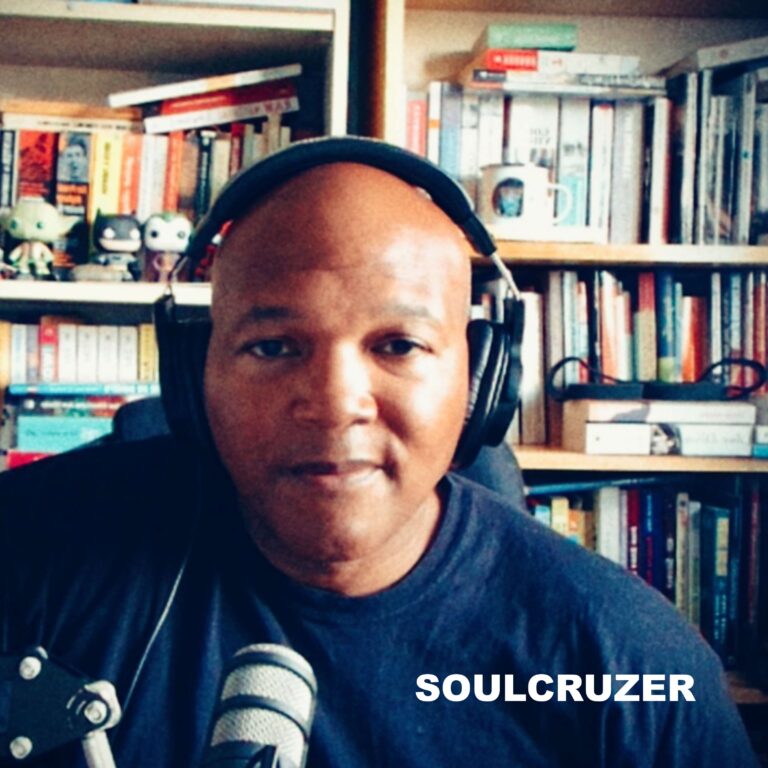When Max Headroom first flickered onto my TV screen in 1985, I was transfixed. His stuttering, glitchy presence burst onto MTV like a neon explosion in a dark alley, and for a moment, it felt like the future had arrived. He wasn’t just a character—he was a phenomenon, a digital oracle who embodied the sharp edge of cyberpunk sensibilities long before the genre became mainstream. To my teenage mind, already tinged with the rebellious hunger for all things sci-fi and subversive, Max Headroom was an electric dream come to life.
For those who didn’t live through it, it’s hard to explain just how alien Max felt at the time. Here was a character who existed entirely in the virtual ether—an artificial intelligence before we really understood what that meant. He had the smirking confidence of a talk-show host, the sharp wit of a hacker, and a face that looked like it had been smoothed out by the relentless hum of a cathode ray tube. “20 minutes into the future,” as his tagline went, felt thrillingly prophetic, especially for a kid who devoured William Gibson and imagined life through the gritty lens of dystopian worlds.
What struck me most was Max’s irreverence. He didn’t play by the rules of polite society or even the conventions of television itself. His rapid-fire quips and chaotic edits felt like a rebellion against the sanitized media of the time, as if he had chewed up the plastic sheen of TV culture and spit it back at us in jagged, pixelated fragments. MTV, with its neon aesthetic and frenetic energy, was already pushing boundaries, but Max Headroom lived those boundaries. He was the punk rock of digital personas, a harbinger of the dissonant future where media, technology, and identity would begin to blur.
But Max wasn’t just style—he had substance, too. Beneath the glitchy charm and self-aware smirk was a mirror reflecting our growing obsession with technology and media. The show’s dystopian world, where corporations ruled and truth was a commodity, felt eerily prescient even back then. Watching Max navigate this hyper-commercialized wasteland while poking fun at its absurdities felt like a small act of defiance, a way of saying, “We see what’s happening, and we won’t go quietly.”
Even now, nearly 40 years later, I can still hear his distorted laugh in my mind, a sound as artificial as it was infectious. It’s funny how memory works—how certain images, sounds, or moments can linger in the subconscious, as vivid as the day they were first encountered. For me, Max is more than a nostalgic touchstone; he’s a reminder of the sheer wonder I felt back then at the possibilities technology promised. He captured a moment when the future seemed infinite, untamed, and just a little bit dangerous.
Looking back, I realize how much Max Headroom shaped my love for cyberpunk. He wasn’t born in some far-off future—he was born of our future, a product of the 1980s zeitgeist where the analog was crashing headlong into the digital. His very existence—partly an actor in prosthetics, partly a digital effect—was a perfect metaphor for the hybrid world we were just beginning to create. That collision of the real and the virtual, the human and the machine, fascinated me then, and it still does now.
Today, in a world where AI personas are commonplace and digital avatars populate our screens, Max feels almost quaint. But he was ahead of his time in ways we’re only beginning to appreciate. He wasn’t just a character—he was a critique, a question mark, a challenge. And while the technology that created him was primitive compared to what we have now, his spirit—chaotic, questioning, and unapologetically artificial—remains relevant.
Watching old clips of Max Headroom now, I can’t help but smile. He’s a relic of an era when the future felt electric and full of possibility, when MTV was a portal to something wild and new. He reminds me of what it felt like to be swept up in the magic of those early digital dreams, before the internet, before smartphones, before AI became just another tool in our arsenal. Max Headroom was a glimpse of the horizon, a cyberpunk prophet telling us, in his own glitchy way, that the future would be both wondrous and weird.
And you know what? He wasn’t wrong.
Discover more from soulcruzer
Subscribe to get the latest posts sent to your email.






